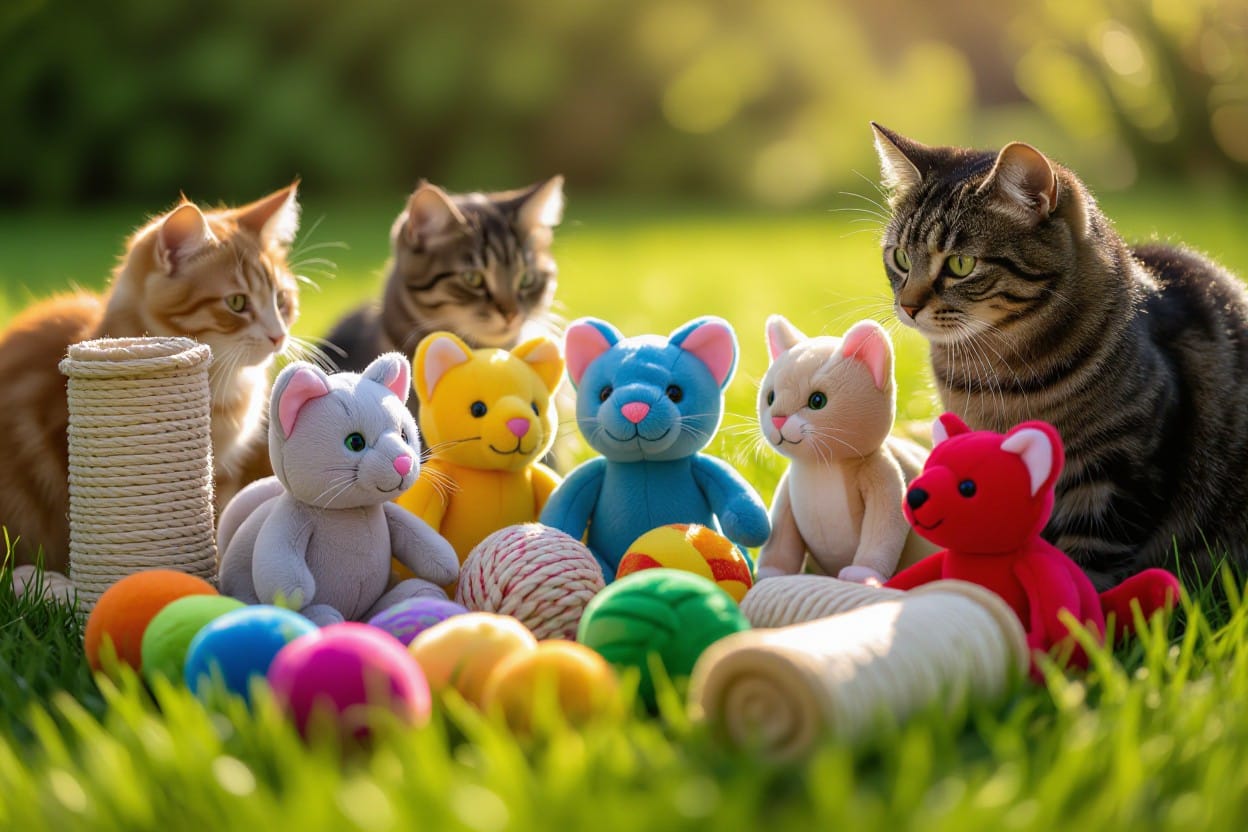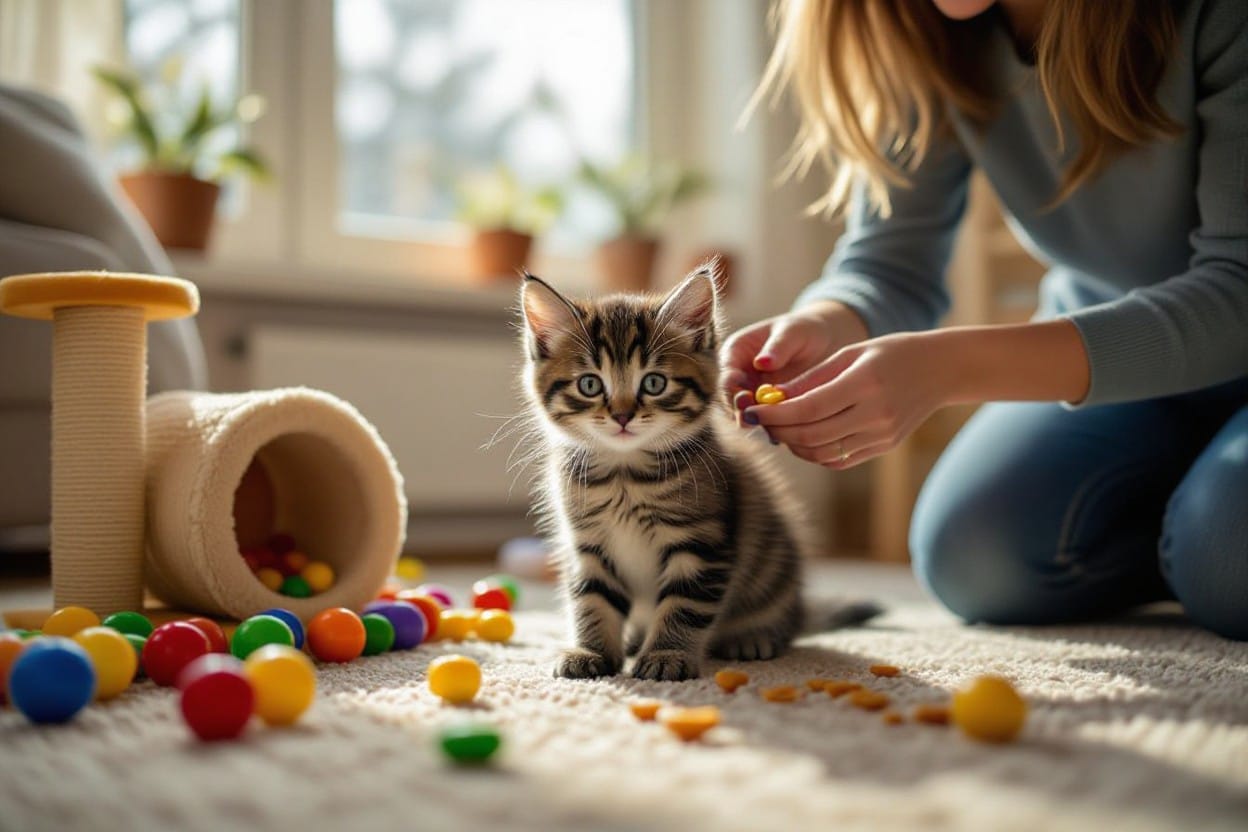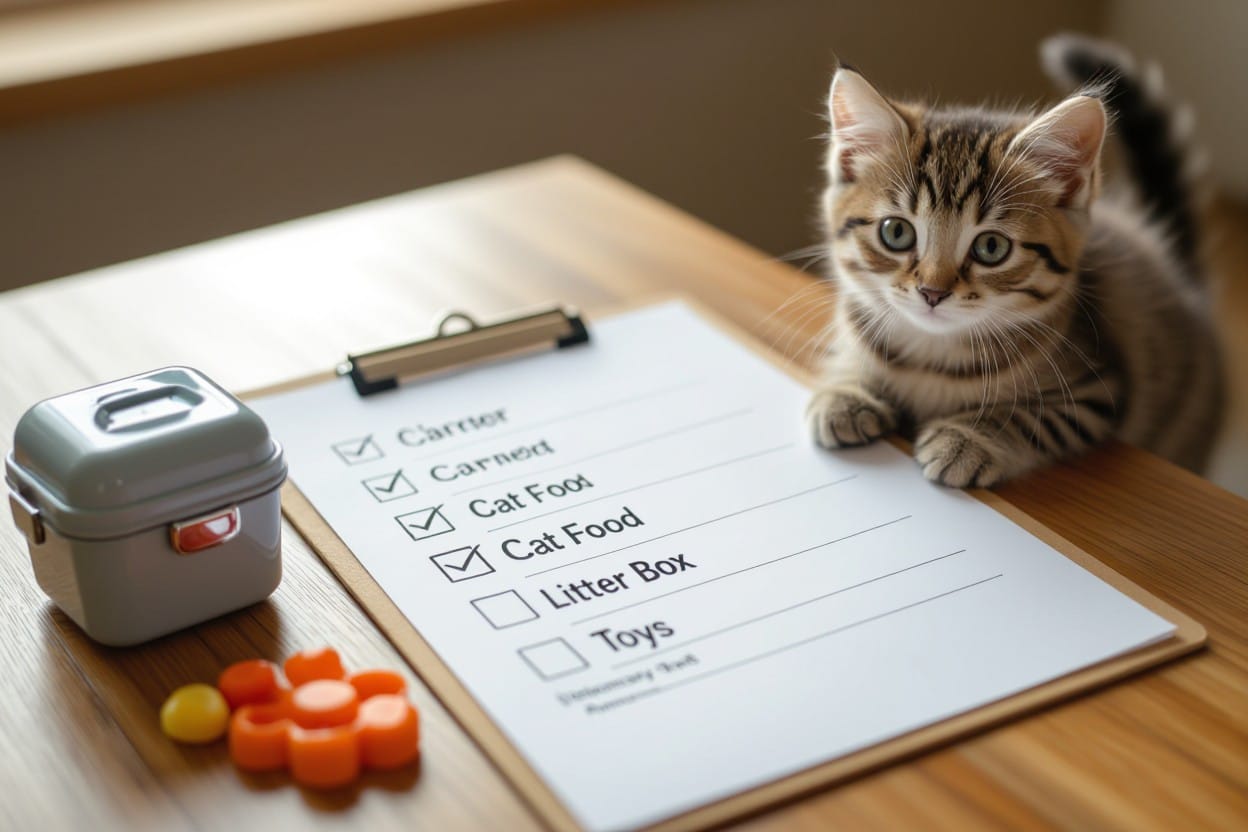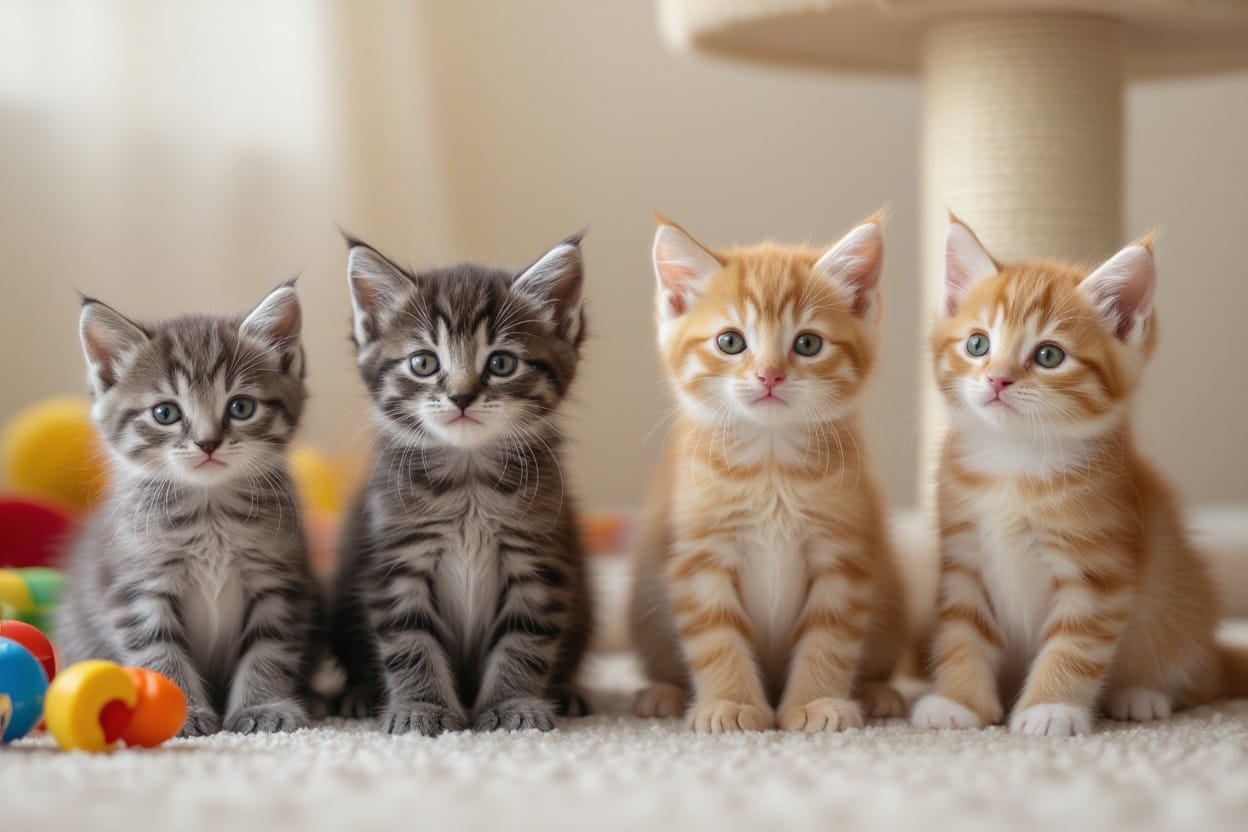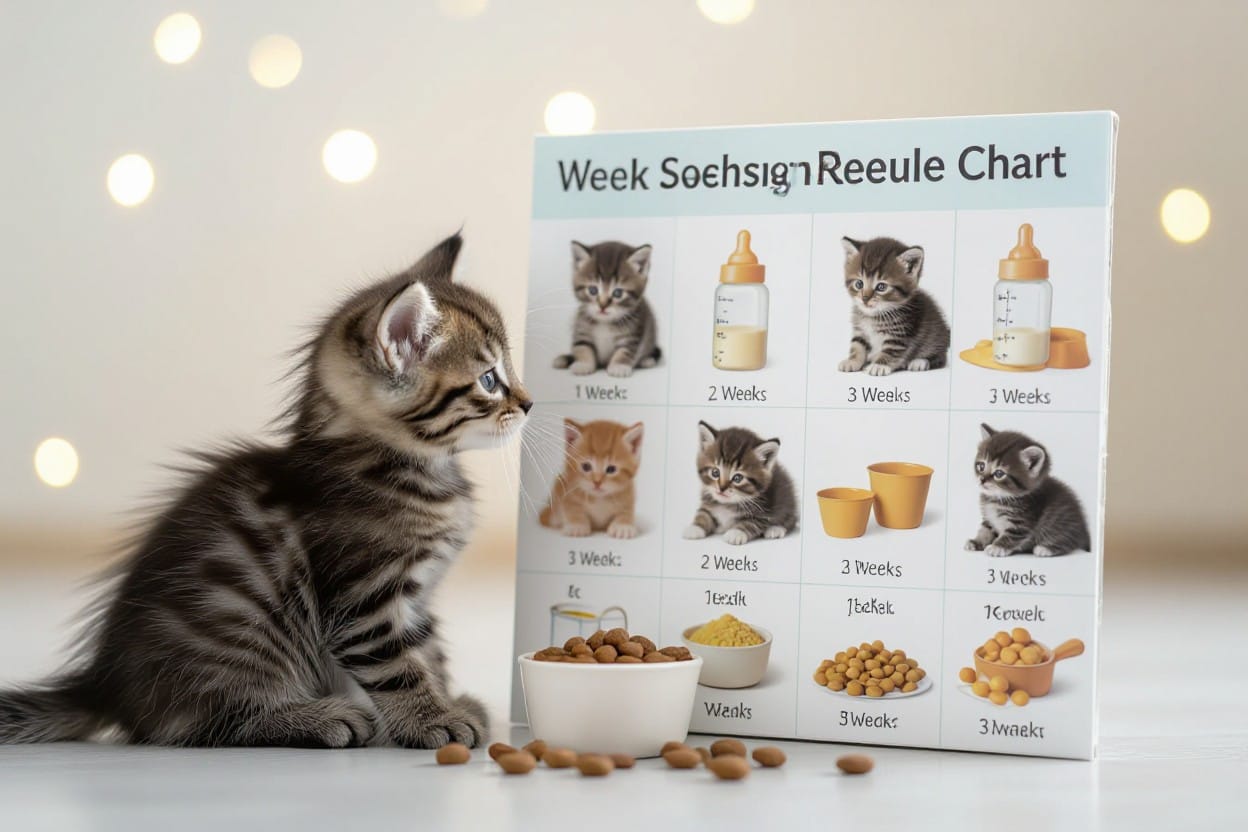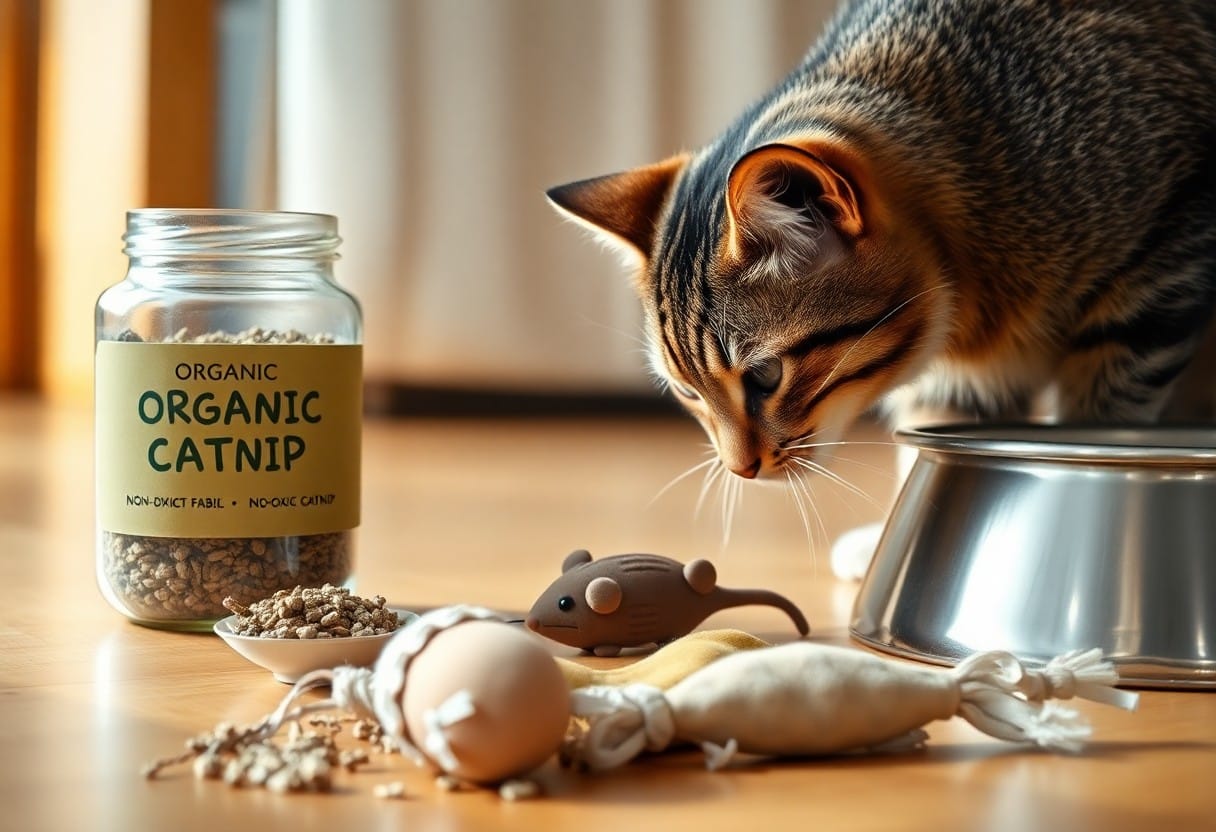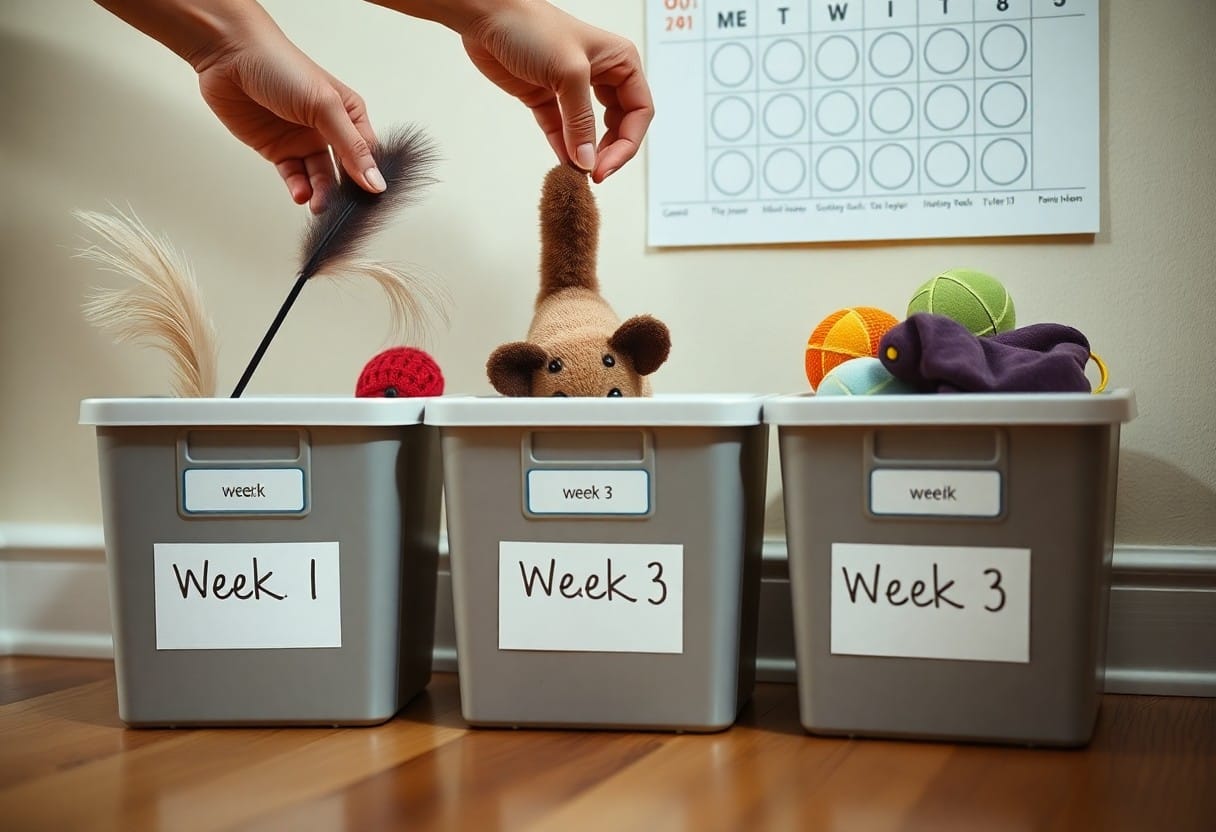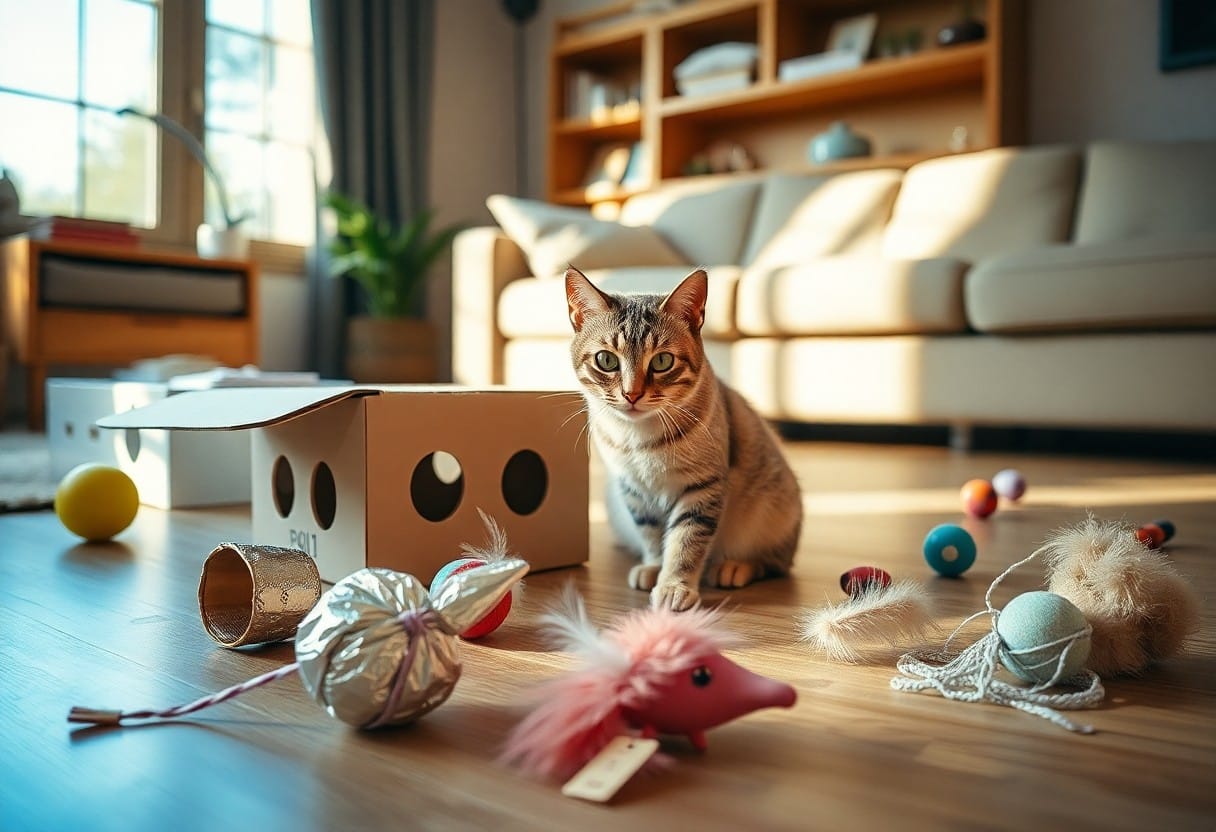There’s a fascinating reason behind why kittens are so drawn to playtime. As natural hunters, kittens are instinctively wired to engage in playful activities that mimic hunting behaviors. This not only hones their hunting skills but also provides vital mental and physical stimulation for their development.
Understanding the science behind why kittens love to play can help cat owners create engaging environments and provide appropriate toys that cater to their natural instincts. By fostering these playful behaviors, you can help your kitten develop crucial skills and maintain a healthy and happy lifestyle.

The Basics of Feline Development
If you’ve ever wondered why kittens love to play, it all comes down to their developmental stages. Just like human babies, kittens go through different stages of growth and maturation that shape their behaviors and preferences throughout their lives.
Stages of Kittenhood
Development in kittens can be divided into several key stages: neonatal (0-2 weeks), transitional (2-4 weeks), socialization (4-14 weeks), and juvenile (14 weeks to 6 months). Each stage plays a crucial role in their physical, social, and cognitive development, laying the foundation for their adult personalities.
Role of Play in Growth and Development
An important aspect of feline development is play. Play behavior in kittens serves multiple purposes, such as honing their hunting skills, establishing social bonds with littermates, and providing mental stimulation. Through play, kittens learn coordination, agility, and social cues that are important for their survival in the wild.
Play also helps kittens cultivate their physical strength, flexibility, and cognitive abilities. It’s not just about having fun; it’s a vital component of their growth and development. So the next time you see a kitten pouncing on a toy or chasing its tail, remember that it’s not just play—it’s a crucial part of their journey to adulthood.
The Instinctive Nature of Play
Predatory Behaviors in Kittens
Behaviors exhibited during play in kittens often mirror their natural predatory instincts. Chasing, pouncing, and wrestling are all behaviors that stem from their innate hunting skills. These actions help kittens develop their coordination, agility, and hunting techniques, preparing them for future encounters in the wild.
Social Play and Hierarchies
To understand the significance of social play in kittens, one must look into how it contributes to their development within the hierarchy of their social group. Play allows kittens to establish bonds with their littermates, building important social skills such as communication, cooperation, and problem-solving. Through play, kittens also learn the boundaries of their social hierarchy, understanding their place within the group.
As kittens engage in social play, they learn to navigate their interactions with others, interpreting social cues and developing crucial social skills that will benefit them as they grow older. Play not only serves as a form of entertainment but also as a vital tool for kittens to learn how to communicate, cooperate, and establish their place within the social structure of their group.

The Cognitive Science of Playing Kittens
Learning Through Play
Cognitive research shows that play is necessary for kittens to learn about their environment, develop necessary skills, and build social bonds. When kittens engage in play, they are actively exploring and experimenting with their surroundings, which helps them understand cause and effect relationships. Through play, kittens are able to practice hunting behaviors, develop coordination, and learn how to interact with other animals and humans.
Problem-Solving and Intelligence
Cognitive studies have found that play stimulates the development of problem-solving skills and enhances intelligence in kittens. Playful activities such as chasing a toy mouse or pouncing on a ball encourage kittens to think critically, make decisions, and adapt their strategies to achieve their goals. This type of cognitive stimulation is crucial for the overall mental development of kittens and can have long-lasting effects on their intelligence and problem-solving abilities.
Kittens who engage in regular play sessions are more likely to exhibit higher levels of curiosity, creativity, and cognitive flexibility compared to those who do not have the same opportunities for play. By encouraging play in kittens, we are not only providing them with physical exercise but also helping them build a strong foundation for cognitive development and problem-solving skills that will benefit them throughout their lives.
The Physical Benefits of Play
Development of Motor Skills
Now, one of the key physical benefits of play for kittens is the development of motor skills. When kittens engage in play, they are not only having fun but also honing their coordination, balance, and agility. Pouncing on toys, chasing laser pointers, and wrestling with siblings are all activities that help kittens improve their motor skills.
Health and Fitness in Young Cats
Motor development and health go hand in hand for young cats. By staying active and engaging in playful activities, kittens can maintain a healthy weight, build muscle strength, and improve their overall fitness levels. Playful behavior also helps kittens release pent-up energy, reducing the risk of obesity and promoting cardiovascular health.
This combination of physical activity and play is important for young cats to grow into healthy and fit adults. As they play, kittens are not only having fun but also setting the foundation for a lifetime of good health and wellness.

Emotional and Psychological Aspects
Bonding and Attachment Through Play
Attachment is a crucial aspect of a kitten’s development, and play is a fundamental way in which kittens bond with their caregivers and siblings. Through interactive play sessions, kittens learn to trust their human companions and build strong emotional connections. Play helps reinforce the bond between a kitten and their owner, enhancing feelings of security and trust.
Stress Relief and Behavioral Health
Attachment to their human caregivers plays a significant role in a kitten’s ability to cope with stress and maintain good behavioral health. Engaging in play allows kittens to release pent-up energy and reduce feelings of anxiety. It serves as a healthy outlet for emotions, helping kittens develop necessary coping mechanisms for dealing with stressors in their environment.
Psychologically, play also stimulates cognitive function and improves mood regulation in kittens. By engaging in playful activities, kittens can enhance their problem-solving skills and boost their overall mental well-being. Play sessions offer a form of mental stimulation that is necessary for a kitten’s development and can contribute to a happier and more well-adjusted feline companion.
The Role of Human Interaction
For kittens, human interaction plays a crucial role in their development and socialization. When humans actively engage with kittens in play, it not only provides physical and mental stimulation but also helps build trust and strengthen the bond between the kitten and their human companions. Interactive play sessions are crucial for kittens to learn important social skills, such as how to communicate, establish boundaries, and understand body language.
Encouraging Play in Kittens
Any cat owner can encourage play in kittens by using a variety of toys and engaging in interactive play sessions. Wand toys, balls, and feather teasers are popular choices that mimic natural prey, stimulating a kitten’s instinct to chase and pounce. It is important to create a stimulating environment with opportunities for exploration and play to keep kittens mentally and physically active.
Suitable Toys and Safe Play Environments
Suitable toys for kittens should be size-appropriate, lightweight, and interactive. Avoid toys with small parts that could be swallowed and cause choking. It is important to rotate toys regularly to keep kittens engaged and prevent boredom. Additionally, safe play environments should be free of potential hazards such as loose strings, plastic bags, and small objects that could be ingested.
Providing a variety of toys and safe play environments not only keeps kittens entertained but also helps prevent destructive behavior and promotes healthy development. By understanding the importance of suitable toys and safe play environments, cat owners can create an enriching and stimulating environment for their kittens to thrive and grow.
Summing up
Following this exploration into the science behind why kittens love to play, we can conclude that play behavior is an crucial part of a kitten’s development. The play offers numerous benefits, from developing physical coordination to honing social skills and fostering cognitive abilities. By roughhousing with their littermates and engaging in interactive play with their human companions, kittens are preparing themselves for adulthood and improving their overall well-being.
In the final account, play is not just a frivolous activity for kittens; it serves a crucial role in their growth and development. Understanding the science behind why kittens love to play can help us appreciate the significance of this behavior and provide them with the opportunities and environment they need to flourish and thrive. So the next time you see a kitten pouncing, chasing, or wrestling with a toy, know that they are not just having fun—they are laying the foundation for a happy and healthy life ahead.
FAQ
Q: Why do kittens love to play?
A: Kittens love to play because it is imperative for their physical and mental development. Play helps kittens learn important skills such as coordination, hunting, and social interaction.
Q: How does play benefit kittens?
A: Play is crucial for kittens as it helps them burn off excess energy, strengthen muscles, and develop their hunting instincts. It also provides mental stimulation and helps prevent behavior problems.
Q: What types of play do kittens enjoy?
A: Kittens enjoy a variety of play activities, including chasing toys, wrestling with siblings, pouncing on moving objects, and exploring their environment. Interactive play with their humans is also very important for their social development.
Q: How can I encourage play in my kittens?
A: To encourage play in your kittens, provide them with a variety of toys such as balls, feathers, and interactive games. Set aside dedicated playtime each day, and engage with your kittens by moving toys around to simulate prey-like behavior.
Q: Are there any health benefits to play for kittens?
A: Yes, play has several health benefits for kittens, including helping them maintain a healthy weight, improving circulation, and reducing stress. Regular play can also strengthen the bond between you and your kitten.
